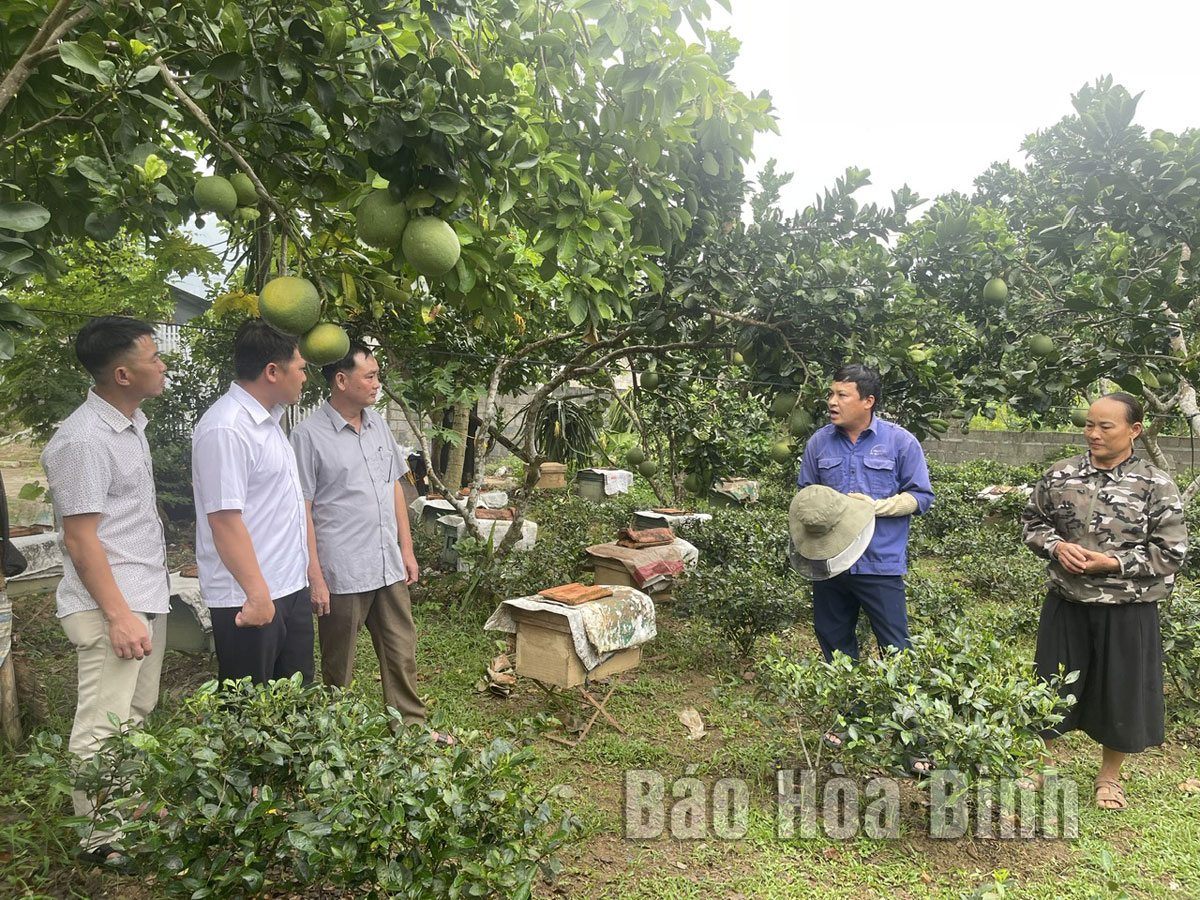
(HBO) - The national target programme on socio-economic
development in ethnic minority and mountainous areas has
been implemented over the past two years in the northern
province of Hoa Binh, bringing improvements in infrastructure,
production, and social security in beneficiary areas.
Hung Thi commune People's Committee in Lac Thuy district uses resources from the national target programme to support local people develop apiculture and VietGap vegetable production.
Quyet Chien commune in Tan Lac district is a disadvantaged area with 90% of its population being minority ethnic groups. However, in 2021, the commune officially won the title of new- style rural area thanks to the maximum utilisation and effective integration of capital from support programmes including the National Target Programme for socio-economic development in ethnic minority and mountainous areas. Bui Van Quang, Chairman of Quyet Chien Commune People's Committee, said that right after developing a plan for building a new-style rural area, the commune mobilised all resources from the national target programme on new-style rural area construction to invest in infrastructure. In addition, it used resources from the National Target Programme for Socio- Economic Development in ethnic minority and mountainous areas to support local people’s livelihood.
Besides Quyet Chien, other communes in the province have effectively used support resources from the programme. Dinh Thi Thao, head of the Committee for Ethnic Minority Group Affairs, said that the programme is an important resource that helps speed up the completion of the criteria for building new- style rural areas in ethnic minority areas in the province. Between 2021 and 2023, the province disbursed nearly 54 billion VND (2.27 million USD) to 10 projects. The province has been investing in 260 projects including 40 community houses, 103 traffic works, 13 roads, five markets, four schools, 10 water supply works, and five irrigation works; and supported people to build economic development models as well as invested in improving the quality of life of people in extremely difficult communes and villages.
By the end of 2022, the rate of poor households of communes in ethnic minority and mountainous areas decreased to 13.11%. Now, cars can reach all communes that have special difficulties; 97.89% of the schools in the areas were built permanent, and 99.84% of the households there accessed power.
The emulation movement "Hoa Binh joining hands to build new-style rural areas” has been widely spreading, becoming a driving force that motivates the localities to renew rural landscapes and improve the material and spiritual lives of the residents. In this movement, the people play a central role-both as the main implementers and direct beneficiaries of its outcomes.
In response to the global digital revolution, Hoa Binh Newspaper is transforming itself into a modern and multi-platform media hub, blending cutting-edge technology with a restructured newsroom and a new generation of tech-savvy journalists.
Hoa Binh province’s Association of the Elderly recently held a conference to review the project on expanding the inter-generation self-help club model until 2025.
In a move to implement Resolution No. 57-NQ/TW, issued on December 22, 2024 by the Politburo, which targets breakthroughs in science-technology development, innovation, and digital transformation, the Hoa Binh provincial Department of Health has issued a plan to roll out the "Digital Literacy for All” campaign within the local health sector.
An Nghia Commune (Lạc Sơn District) is one of the communes that achieved the tha standard of the national new rural area in 2018. Entering a new development phase, the commune is now trying to meet the criteria for the advanced new rural development. With the strong political will and the public consensus, the commune is gradually overcoming the challenges to reach this goal, aiming for the sustainable development.



